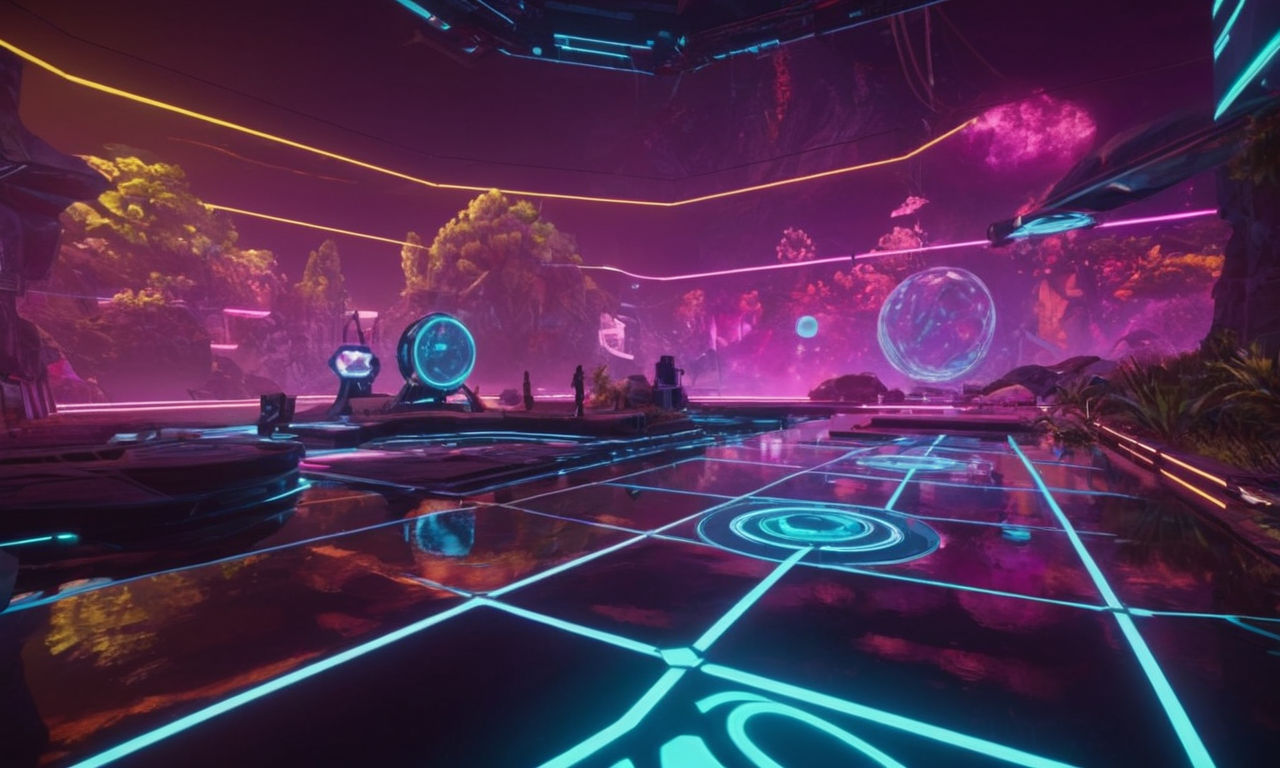Introduction
In the realm of modern gaming, raids have long been a staple feature, offering challenging group-based activities that require coordination, skill, and perseverance. One notable trend that has emerged in recent years is the increased emphasis on raid matchmaking, allowing players to group up with strangers to tackle these challenging encounters. However, despite the popularity of raid gameplay, there are growing concerns regarding its repetitive nature and the exclusivity often associated with raid matchmaking. This has prompted many to question the traditional raid format and explore alternative gameplay experiences that are more inclusive and engaging for all types of players.
Understanding Raid Gameplay Critique
Repetitive Nature of Raid Mechanics
One of the primary criticisms leveled against traditional raid gameplay is the repetitive nature of raid mechanics. Raids often involve completing the same objectives or puzzles repeatedly, leading to a sense of monotony for players who have mastered these tasks. This can diminish the overall enjoyment of the raid experience and discourage players from engaging in repeat runs.
Challenges Associated with Raid Matchmaking
While raid matchmaking offers a convenient way for players to team up with others, it also presents its own set of challenges. Matching with random players can sometimes result in mismatched skill levels or conflicting playstyles, leading to frustration and failed attempts at completing raids. Additionally, the lack of communication and coordination among randomly matched groups can impact the overall success rate of raid runs.

Analyzing Player Feedback on Traditional Raid Experiences
Player feedback on traditional raid experiences is varied, with some praising the teamwork and coordination required to tackle challenging encounters, while others express frustration at the time commitment and coordination hurdles involved. The feedback highlights the need for a more flexible and inclusive approach to raid gameplay that caters to a broader range of player preferences and playstyles.
Alternative Gaming Modes as a Solution
Introducing alternative gaming modes presents an opportunity to address the shortcomings of traditional raid gameplay and offer more diverse and inclusive experiences for players. By expanding the range of gameplay modes available, game developers can cater to different player preferences and provide engaging content for a wider audience.
Benefits of Diverse Gameplay Experiences
Alternative gaming modes can introduce fresh challenges, unique mechanics, and varied objectives that break away from the repetitive nature of traditional raids. This diversity can keep players engaged and invested in the game over the long term.
By offering different gameplay modes, developers can appeal to a wider audience with varying skill levels, playstyles, and preferences. This inclusivity can help foster a more welcoming and diverse gaming community.
Engaging a Wider Audience
Alternative gaming modes can attract players who may not enjoy the high-stress, time-sensitive nature of traditional raids. By providing options that cater to different playstyles, developers can ensure that all players have a chance to enjoy challenging content in a way that suits their preferences.
Diversifying gameplay modes can also help retain players who may feel burnt out or frustrated with traditional raids, offering them new challenges and experiences to keep the game fresh and exciting.
In conclusion, exploring alternative gaming modes presents a promising path forward for the gaming industry, offering a more inclusive, diverse, and engaging approach to gameplay that can appeal to a wider audience. By rethinking raids and considering alternative formats, developers have the opportunity to break new ground, challenge conventions, and pave the way for a more dynamic and innovative gaming landscape.
Examining Inclusive Game Design Principles

In the realm of modern gaming, inclusive game design plays a pivotal role in shaping player experiences and fostering a welcoming environment for all gamers. Let's delve into the core aspects of inclusive game design:
Defining inclusive game design: Inclusive game design revolves around creating games that are accessible and enjoyable for a diverse range of players, regardless of their background, abilities, or preferences. It focuses on removing barriers that may hinder some individuals from fully engaging with the gaming experience.
Exploring the importance of accessibility in gaming: Accessibility in gaming goes beyond traditional notions of difficulty settings. It encompasses considerations such as customizable controls, subtitles for players with hearing impairments, color-blind modes, and options for players with mobility limitations. By prioritizing accessibility, game developers can ensure that their creations are welcoming to a broader audience.
Discussing how inclusive game design can enhance the overall player experience: By embracing inclusive design principles, developers can create games that resonate with a larger player base. When games are designed with diverse needs in mind, players experience a more immersive and engaging gameplay that caters to their individual preferences and capabilities.
Case Studies: Games Embracing Alternative Gameplay
To truly understand the impact of alternative gameplay modes, it's essential to explore how some games have successfully implemented these innovations. Let's take a closer look at some notable examples:
Overview of games that have successfully implemented alternative gameplay modes: Games like "Overwatch" with its emphasis on team-based objectives, and "No Man's Sky" with its exploration-focused gameplay, have garnered praise for offering diverse experiences beyond traditional raid formats.
Analyzing player responses to non-traditional gaming experiences: Player feedback on games that embrace alternative gameplay has been overwhelmingly positive. The innovation and creativity displayed in these titles often lead to a more engaging and memorable gaming experience for players.
Highlighting the positive impact of diversifying gameplay options: By diversifying gameplay options, developers can attract a broader player base with varying preferences. This not only increases player engagement but also contributes to a more vibrant and inclusive gaming community.
Implementing Change: Ideas for the Future
As we look towards the future of gaming, it's crucial to consider how developers can incorporate alternative gameplay modes to enrich the gaming landscape:

Proposing strategies for game developers to incorporate alternative gameplay modes: Game developers can introduce new modes that focus on exploration, creativity, or narrative-driven experiences alongside traditional raid content. By offering a variety of gameplay options, developers can cater to different player preferences.
Discussing the potential challenges in transitioning away from traditional raids: Transitioning away from traditional raid formats may present challenges, including addressing existing player expectations and balancing resources to support new modes. However, with careful planning and community involvement, these challenges can be overcome.
Emphasizing the importance of player feedback in shaping the future of gaming: Player feedback is paramount in shaping the direction of game development. By actively listening to player preferences and adapting gameplay based on their input, developers can create a more player-centric gaming experience that resonates with a diverse audience.
The Future of Gaming: Diverse and Inclusive Experiences
In the ever-evolving landscape of gaming, the concept of diversity and inclusivity has become increasingly essential. As we move towards a more interconnected world, the need for games that cater to a wider range of players has never been more apparent. Envisioning a gaming sphere that embraces diversity goes hand in hand with creating inclusive gameplay experiences that resonate with all types of gamers.
Evolution of Gaming Towards Inclusive Experiences
The traditional raid format, such as seen in games like Ghost Recon Breakpoint, has often been critiqued for its exclusionary nature, particularly in terms of raid matchmaking. This limitation can alienate players who may not have a dedicated group to tackle such challenges. However, the future of gaming holds the promise of innovative alternatives that prioritize inclusivity without compromising on the thrill of cooperative gameplay. Developers are now exploring ways to bridge the gap between hardcore raid enthusiasts and more casual players by introducing diverse mechanics that cater to various playstyles.
New Horizons in Game Design
The shift towards more inclusive gameplay does not mean sacrificing the complexity and depth that raids offer. Instead, it opens up new avenues for creative game design that encourages collaboration and teamwork without imposing rigid requirements. By expanding the range of gaming experiences to accommodate different skill levels and preferences, developers can cultivate a more vibrant and engaging gaming community. Embracing these new horizons in game design not only enhances player satisfaction but also fosters a sense of belonging and camaraderie among diverse groups of gamers.
Conclusion
In conclusion, the traditional raid mechanics have long been a staple in gaming, offering challenging cooperative experiences for dedicated players. However, the limitations of raid matchmaking and the narrow focus on hardcore gameplay have prompted a reevaluation of this traditional format. By considering alternative gaming modes and embracing more inclusive game design, the gaming industry can pave the way for a future that caters to a broader audience.
It is imperative for players and developers alike to engage in conversations that challenge the status quo and advocate for diverse and inclusive gameplay options. By championing diversity and inclusivity in game development, we not only enrich the gaming experience but also contribute to a more welcoming and vibrant gaming community. Let us continue to explore new horizons in gaming and collectively shape a future that celebrates the diversity of players and the limitless possibilities of interactive entertainment.



